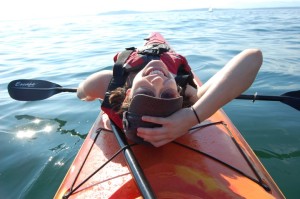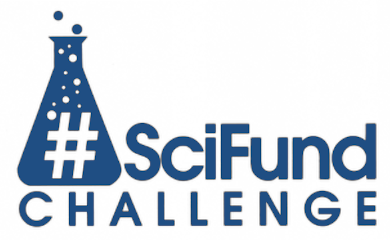https://experiment.com/projects/how-can-ngos-guide-fisheries-to-ecological-sustainability
Each day we are going to highlight one of the amazing research projects seeking funding in Round 4 of the #Scifund Challenge. Today we get to speak with Laura Deighan as she speaks about how fisheries can be more ecologically sustainable. She also was the first project fully funded in this round, so just sit back and enjoy a good conversation!
Tell us about yourself, where you are from, and where you see yourself going.
I have lived in Delaware, Massachusetts, Florida, Virginia, and Washington – never too far from an ocean! I did my Bachelor’s at Florida Institute of Technology in marine biology. After graduating, I worked for a few years as an aquarist, taking care of fish, turtles, and invertebrates at an aquarium while I figured out what my next step was. I have always loved biology and science, but I believe that science is most meaningful when it is shared. Improving the state of our oceans requires the cooperation of people from many different roles – scientists, policy makers, the media, industries working on and in the ocean, consumers, etc. For this reason, I decided to pursue an interdisciplinary Master’s in Marine Affairs to add knowledge of social science to my biology background.
After graduating, I hope to work on the issues plaguing our oceans at a job that integrates science and policy in a way that is accessible to policy makers, industry, and/or the general public. Ideally, this would involve working on issues of sustainability within the seafood industry.

How did you get involved in your research project?
I started interning with FishWise, a non-profit working in sustainable seafood consulting, over the summer. In that role, I research and report on different fishery improvement projects (FIPs) that industry partners are involved in, which helps those companies evaluate and report on their participation in those FIPs. When I started out I didn’t even know what a FIP was! They are a pretty new tool just starting to gain traction in the realm of seafood sustainability, so little research has touched on their use. I decided that this was an area I wanted to focus on while working on my Master’s and chose it as my thesis topic.
Why is your research important to you? Why should others fund it?
I am really excited about the idea of FIPs. I am a big proponent of collaborative solutions to sustainability that involve industry. The people in the industry are the ones on the water doing the work and potentially impacting the environment, plus they have a wealth of knowledge that you don’t get from research. FIPs utilize this approach because the process is meant to be stakeholder driven and collaborative. If FIPs are going to be a viable option, we really need to understand them better- if they work, how they work, and why they work. My research is taking a small step toward this understanding, focusing on how they work.
Why did you decide to participate in the SciFund Challenge?
I knew participating in SciFund would push me to communicate more about my research. I know that there are people out there that care about sustainability in the oceans, and I want to help inform that audience. However, as a graduate student, life can be pretty busy, so it is nice to have the extra push to share my research.
What was the most difficult aspect of building your SciFund Proposal? What was your favorite?
It was difficult for me to figure out how to best present and talk about my topic in an accessible way. Not because I didn’t think people would get it, but because after being in a specific field for so long you start to lose touch with reality. Being in school, you are constantly surrounded by people talking about similar topics and using the same terminology as you, and you start to think everyone talks about those things. With all the terminology that comes with FIPs, it was difficult to know how to translate that.
At the same time, that may have also been my favorite aspect. It was exciting to think about how I could share the information with people that may not already be familiar with the topic and how to do so. I learned a lot from it.
Tell us something random. Something funny. Something borrowed. Something blue.
I am a huge marine turtle and iguana fanatic. I feel the same way about them as Kristen Bell feels about sloths and how that kid in Despicable Me feels about stuffed unicorns, minus the fluffy part (http://www.youtube.com/watch?v=tt6FPKyQamk).
I don’t eat seafood. I never really liked the taste and found out I was allergic to shellfish while prepping it as food for aquarium animals, but sometimes feel a little self-conscious about this. I got into this field because I am passionate about marine life and find the fishing and seafood industries fascinating.
You can read more about Laura’s research here.


